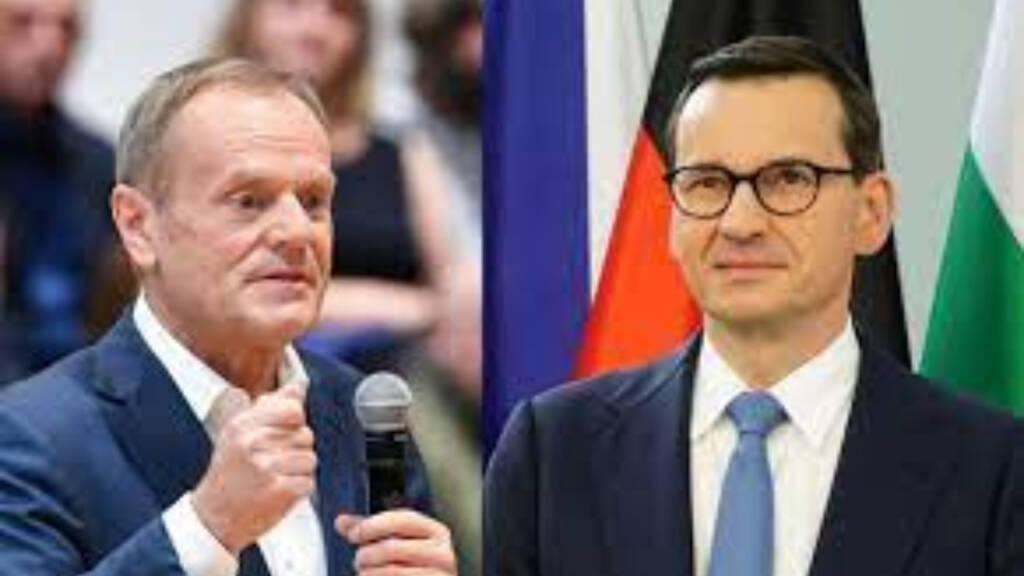On December 13, the new Polish Prime Minister, Donald Tusk, and his Cabinet assumed office, marking the conclusion of eight years under the national conservative Law and Justice party. Tusk, a former European Council President, leads a pro-EU cabinet that recently dismissed executives from state-run media outlets, including TVP, Polish Radio, and the government-run PAP news agency.
The rationale behind these terminations is attributed to the government’s aim to reinstate impartiality within these media channels. This move signifies a notable shift in the country’s political landscape, prompting attention to the potential implications for media independence and neutrality under the new administration.
Join Us On Telegram: https://t.me/tfiglobal
In the lead-up to October’s election, Donald Tusk asserted a swift overhaul of the public media system within 24 hours if elected. Recently, Warsaw’s parliament approved a resolution urging state authorities to act promptly in reinstating constitutional order for citizens’ access to reliable information and the proper functioning of public media.
The announcement of a new presenter signals an imminent change in the narrative, aiming for a more authentic portrayal of events, departing from the previous eight years’ narrative painted with purposely selected colors. Notably, in October 2020, amidst protests against Poland’s abortion law, TVP’s news banner glaringly declared, “Left-wing fascism destroys Poland,” showcasing the media’s role in shaping public discourse during politically charged moments.
The recent dismissal of state media bosses in Poland has ignited a contentious debate surrounding media pluralism and political influence. Critics, including Donald Tusk, have accused these media outlets of acting as propaganda tools for the Law and Justice party (PiS), promoting its agenda and Euroskeptic views. The adoption of the resolution prompted a sit-in protest at the TVP headquarters by PiS officials, led by Jaroslaw Kaczynski.
Read More: Terrorism was a Sin as per the Canadian Constitution. Then Came Justin Trudeau
Kaczynski emphasized the importance of media pluralism for democracy but argued that public media in Poland served this purpose. This is clearly an attack on the free media; it is a violation of the law,” former PiS Culture Minister Piotr Glinski said on Wednesday.
The standoff reflects the complex interplay between political power and media independence, raising concerns about the future direction of media policies in Poland.
As this situation unfolds, it underscores the broader challenges faced by democracies in maintaining a balance between a free press and the potential for political influence.
In recent developments, the dismissal of state media bosses by Poland’s new government, particularly the removal of key figures associated with public broadcaster TVP, has triggered significant reactions. Maciej Swirski, appointed by the PiS, labeled this move as “an act of lawlessness,” drawing parallels to the darker days of martial law.
Read More: Duda might get Donald Tusk framed right before the elections to steal power
Former PiS prime minister, Mateusz Morawiecki, took to social media, denouncing the government’s “illegal actions” and accusing Donald Tusk’s government of a systematic intent to violate the rule of law. Morawiecki’s resolute statement, “We will not give up. We will not allow for a dictatorship to be built in Poland,” underscores the high-stakes nature of this political maneuver, suggesting a potential clash over democratic principles and governance in the country.
In a 2020 evaluation, Reporters Without Borders highlighted persistent issues within Poland’s state media. The report emphasized that state-owned outlets had shifted towards government propaganda, fostering partisan discourse and hate speech.
This is noteworthy considering the significance of state media in Poland, where approximately one-third of the population depends on it for news due to limited access to private broadcasters. The challenge lies in ensuring unbiased information dissemination and maintaining the public’s trust in these crucial communication channels.
The recent shakeup in Poland’s state media under Prime Minister Donald Tusk reflects a dynamic political landscape. Tusk’s commitment to reinstating impartiality signals a departure from the previous government’s narrative. However, critics, including Tusk himself, remain skeptical about media pluralism and fear potential political influence.
The ongoing clash over media independence underscores the broader challenge faced by democracies in preserving a free press while navigating the intricate relationship between politics and information dissemination. As Poland enters this new chapter, the world watches closely, contemplating the delicate balance between governance and journalistic integrity.
Watch More:
